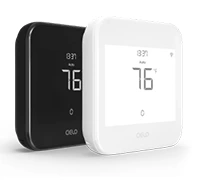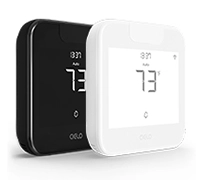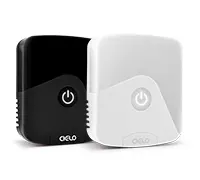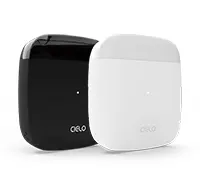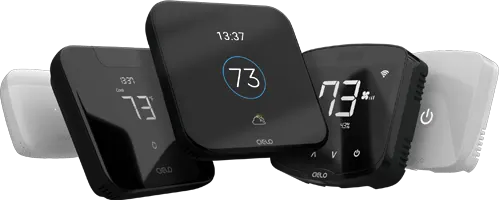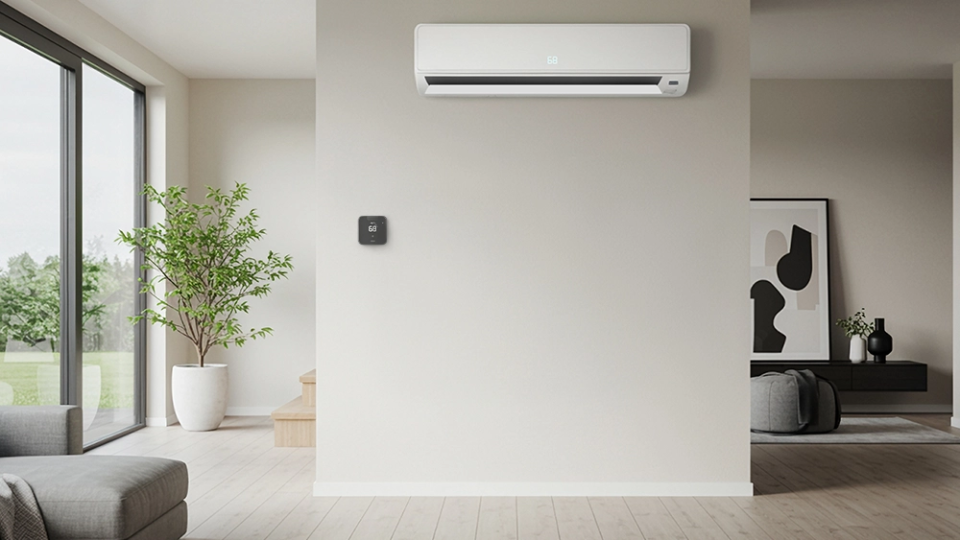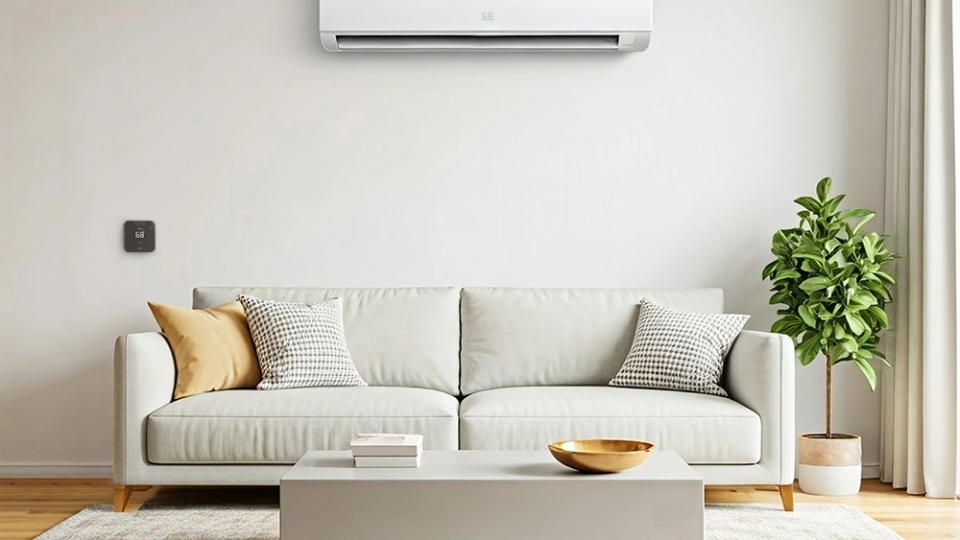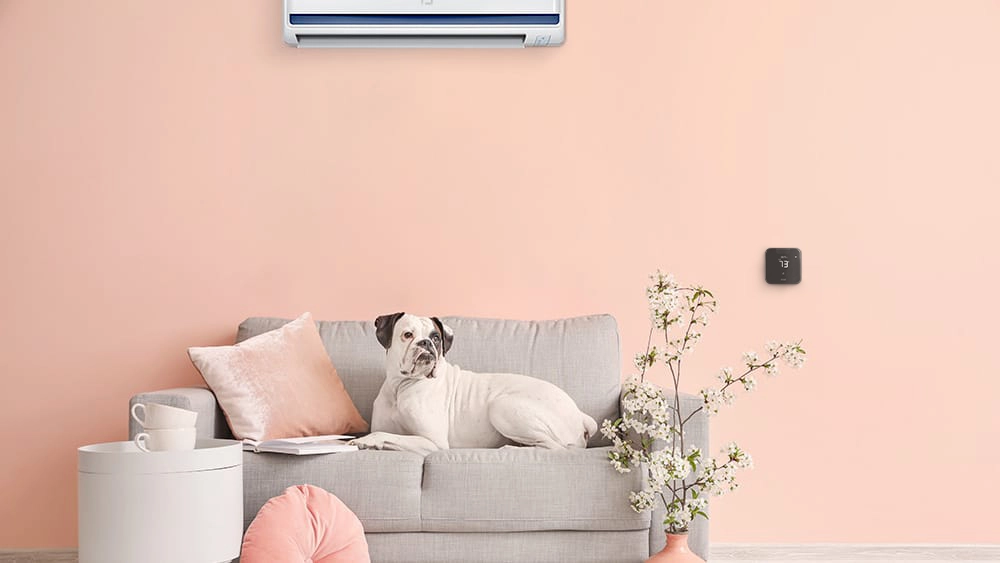
Key Takeaways
- A residential HVAC unit is the one that you install in your home.
- There are various types of residential systems, like central HVAC, mini-split, window, or portable units.
- Residential and commercial HVAC systems vary in size, installation, maintenance needs, and operating power.
HVAC (Heating, Ventilation, and Air Conditioning) units have become a necessity with extreme weather changes globally. Be it your home or your office, an air conditioning unit is what makes you sail through a hot or a cold day.
Deciding which residential HVAC unit to buy for your home might be a tough decision considering the size of your home and the different needs of your family members. If you have a really big home, you might think about buying a commercial unit? But that is not the case!
While it may sound logical to get a bigger unit for a big house, commercial units are not a fit for residential use.
To take you out of this confusion, we’ll help you choose the right type of residential HVAC unit and tell you how it is different from a commercial unit.
What Is Residential HVAC?
A residential HVAC unit is a piece of equipment that you install in your home to maintain the indoor temperature.
Residential HVAC systems usually consist of two separate units. One is the indoor evaporator, and the other being the outer compressor. Residential HVAC units have a closed-loop refrigerant system. This refrigerant is the force that provides conditioned air inside your home by continuously circulating between the evaporator and condenser.
Choosing the Right Residential HVAC System

There are different types of residential HVAC systems available in the market. You might get confused about which one to buy since they all come with their own pros and cons. Let’s take a quick look at which one would be the best option and why.
| Type of Residential AC | When To Choose It |
| Central Air Conditioner | It is the most common type of air conditioner used in the US. If you have a large home and want to cool all rooms at once, then it is the best option. Central ACs use large ductwork spread across your house to provide conditioned air to multiple rooms. |
| Ductless Mini-Split | This type of AC is best if you don’t want the hassle of ducts in your home. Mini-splits come in different shapes and sizes, making them easy to fit at almost any place. They are getting popular because of their efficiency and the fact that they can condition different rooms separately as needed. |
| Window Air Conditioner | Window air conditioners are best suited for smaller homes. They don’t take up space on floors and are installed in the windows. If you have a single portion, a large window AC unit can be used to condition the entire space. |
| Through-the-Wall Air Conditioner | Similar to the window ACs, through the wall air conditioners are best suited if your home does not have enough windows or has small windows. Even if you have windows, you should opt for a wall AC if you don’t want the view obstructed; however, these are a more permanent option. |
| Portable Air Conditioner | A portable air conditioner is a stand-alone device that can be placed anywhere besides a socket and a window. It is considered one of the most convenient AC to use because of its easy mobility and placement. |
| Floor Mounted Air Conditioner | If you love the idea of having a mini-split, but the walls in your home are slanted or small for a wall-mounted unit, then a floor-mounted air conditioner is your go-to option. The indoor unit is installed just six inches higher than the floor. This also makes it easily accessible for routine checks, especially when changing the air filters. |
| Hybrid / Dual Fuel Air Conditioner | If you’re always worried about your electric bills, then go for a hybrid AC or also known as a dual fuel air conditioner. The equipment is a combination of a gas furnace and an electric air source. The system automatically switches between the two depending upon the temperature outside. |
| Smart Air Conditioner | As the name suggests, smart air conditioners connect to Wi-Fi, enabling them to offer smart features to the users. The features include weekly scheduling, temperature range control, geofencing, and many more. You can control your smart AC using your smartphone through an app. Head to this link to view our top picks for the best smart air conditioners. |
| Geothermal Air Conditioner | Geothermal air conditioners take advantage of the temperature four to six feet under land that remains consistent throughout the year. It is a highly efficient type of AC and also has a longer lifespan. |
Read this article to learn more about the types of ACs and choosing the best air conditioner for your home.
Your best choice to make any mini-split, window,
or portable AC smart. Enhance your comfort and savings.
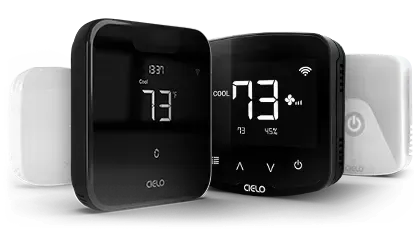
8 Differences Between Commercial and Residential HVAC Systems
You might have heard or read the terms commercial and residential HVAC often. But do you know what the difference between the two is?
While both of them work on the same principle and function to provide cool or hot air, many things differentiate the two. Let’s take a look at all of them below:
1. Size of the HVAC Unit

The most obvious difference between a residential and a commercial HVAC unit is of size. Commercial buildings are much larger than residential buildings or houses. Their requirement to condition an area also differs significantly. Hence, commercial units are much bigger in size than home HVAC systems.
When buying a residential HVAC unit, it’s important you get the correct size for your space. Learn all about air conditioning sizing here.
2. Operating Power
The bigger the system, the more power a system consumes and produces to fulfill the needs of an area. Since commercial HVAC systems are much bigger, they are more powerful than residential HVAC units. Resultantly, commercial units can consume more energy and produce much more noise as compared to home HVAC units.
3. Placement of the System
Due to their enormous size, you will usually find commercial units on the roof of the building. You cannot place them beside the building since they consume a lot of space. Keeping the unit on the roof also gives the technicians enough space for regular maintenance or fixing any other problem.
On the other hand, for residential HVAC, the indoor air handler is inside while the compressor usually stays outside of the house.
4. Split System or Packaged System
In Commercial HVAC systems both the cooling and heating units are inside a single unit. This is also one of the reasons why commercial HVAC units are more complex.
On the other hand, home HVAC systems come in two parts, i.e., an indoor evaporator and an outdoor compressor.
5. Standalone System or Modular System
Commercial HVAC units are designed as a packaged system, but it is developed in modules. When there is a need to change or upgrade the system, only certain modules of the system have to be replaced.
Residential HVAC units are standalone in the sense that both the indoor and outdoor units are connected and need to work in correspondence to each other.
6. Drainage, Ventilation & Exhaust
Commercial units have a more complex and large drainage system to properly dispose of the large amount of condensate produced as a result of cooling. In contrast, home HVAC uses a drain pan placed outside to remove the relatively small amount of condensate.
The ventilation process of both systems is similar to each other. They use ducts and vents to direct the airflow throughout the building. The only difference comes in the size of ducts. Commercial units have very large air ducts in contrast to residential HVAC.
For the process of exhaustion, commercial units may include some extra components to cater to the needs of a huge system.
7. Installation Costs
The upfront cost of residential HVAC units is much lower than commercial units since they are smaller and less complex. The installation costs also have a huge difference for both types. You’ll need to put together several pieces to get the commercial units working hence, an increase in costs.
8. Maintenance of the HVAC Unit
Due to the complex and massive system, commercial HVAC units require extensive maintenance. Building owners usually hire a technician who keeps a check on different modules from time to time. The maintenance of a commercial unit is also very costly.
Residential HVAC units also require maintenance but not on such a large scale. Homeowners can also carry out regular maintenance on their own as the units are not that complex. Some people also hire professionals for routine maintenance.
Make Any Residential HVAC Unit Smart
You can make any air conditioner smart! And yes, even if you have an old air conditioner!
How?
All you’ve to do is pair your central unit with a smart thermostat or a mini-split thermostat in case of room units. They equip you to actively manage your flexible air conditioning needs while helping you reduce your AC costs.
We hope that this article is helpful, and now you know and understand the difference between a commercial and residential HVAC system. Now is the time to go and grab the most suited residential HVAC for you so that you can enjoy a comfortable inside environment.
